In a bold stance that reverberates beyond the sports arena, the Government of India has confirmed that athletes from Pakistan will be allowed and encouraged to participate in the Commonwealth Games 2030 in Ahmedabad. Despite deep‐seated political tensions between the two countries, officials say excluding Pakistan would jeopardise India’s long-term ambitions—particularly the country’s bid to host the Summer Olympics 2036.
India’s decision, announced by the Ministry of Youth Affairs and Sports, is grounded in adherence to international sporting norms and the need to avoid sanctions from the International Olympic Committee (IOC). Citing Indonesia’s recent sanction for barring athletes on political grounds, the ministry stressed that India could similarly suffer if it barred Pakistan from a multilateral event hosted at home.
As India moves toward securing the 2030 Games in a formal announcement scheduled for November, the issue has emerged as a litmus test for how sport and geopolitics intersect in the region. The decision carries implications for regional diplomacy, domestic sentiment and the broader narrative of India on the world sports stage.
Sporting diplomacy over political enmity
The government’s position signals a distinct split between bilateral hostility and multilateral sporting engagement. While India has terminated a number of bilateral sporting ties with Pakistan following recent cross-border incidents, its stance on multilateral events remains more inclusive. Sport, the ministry argues, cannot become collateral damage of political disputes.
A dedicated source within the sports ministry explained that hosting a major event like the Commonwealth Games is not just about infrastructure and logistics but about meeting the charter of the IOC. Excluding a country solely for political reasons could undermine India’s credibility and lead to sanctions, hampering its Olympic aspirations.
Learning from Indonesia’s sanction saga
India’s rationale references the case of Indonesia, which came under scrutiny and sanction by the IOC after refusing visas to athletes of a certain nationality. The threat that India could face a similar fate loomed large in discussions leading up to the Pakistan inclusion decision. By allowing Pakistan’s participation, India avoids the path that led Indonesia to lose dialogue with the IOC over hosting rights.
The comparison underscores the idea that participation rules and non-discrimination frameworks are non-negotiable for any country hoping to host flagship global sports events. The ministry notes that by remaining compliant, India keeps the door open for future Olympic hosts and major championships.
Why the 2030 Games are critical for the Olympic roadmap
The Commonwealth Games in Ahmedabad and Gandhinagar are seen as a stepping-stone toward India’s larger goal of hosting the 2036 Summer Olympics. Successfully executing the multi-sport event with complete international participation, including Pakistan, will bolster India’s credentials. Any exclusion could raise red flags among international federations and jeopardise India’s wider ambitions.
Officials point out that delivering a flawless 2030 Games with full representation will serve as a rehearsal for 2036—logistically, diplomatically and reputationally. Inviting and accommodating athletes from Pakistan underscores India’s readiness for inclusive hosting and adherence to global norms.
Domestic backlash and international optics
The decision to invite Pakistan has sparked domestic criticism and emotional responses from sections of the public, particularly in the wake of recent terror attacks attributed to militant groups based in Pakistan. The government acknowledges these concerns but maintains the long-term sporting and diplomatic logic outweighs immediate backlash.
From an international viewpoint, India’s openness to the participation of all Commonwealth nations, including rivals, projects the country as a mature host. It builds goodwill among sporting bodies and helps position India as a neutral yet ambitious player in global sports governance.
Logistics, platform readiness and legacy matters
Hosting an event of the scale of the 2030 Games requires not just stadiums and accommodation but also seamless processes for visas, accreditation, customs, anti-doping and athlete welfare. Pakistan’s inclusion therefore becomes a test of India’s ability to deliver equitable services for all participants without bias.
The government emphasises that operational readiness will be enhanced by the inclusion, showing that India can handle any political complexity behind the scenes while presenting a unified global sports experience. The legacy value, in terms of diplomacy and sporting infrastructure, becomes significantly stronger with full participation.
What challengers and critics must consider
One challenge lies in maintaining a balance between national sentiment and international obligation. Critics argue that sporting ties with Pakistan may be simplified while deeper structural issues remain unresolved. Others claim that inviting a rival without resolving bilateral issues may lead to optics of guilt or weakness.
The ministry contends that sport offers a separate track—distinct from bilateral diplomacy—but not unconnected. The lesson: hosting mega-events demands a commitment beyond the field, and any host must align with global principles of non-discrimination regardless of political fallout.
The long game: India’s Olympic ambitions
The inclusion of Pakistan in the 2030 Games is not just a one-off decision—it is a strategic move toward the 2036 Olympic Games. By demonstrating adherence to IOC norms now, India lays the groundwork for larger hosting rights, global credibility and regional influence in sports. The gamble is clear: inclusive hosting now for flagship rights later.
If India delivers on the 2030 Games with professionalism, inclusivity and global participation, the country’s messaging to the IOC will be strengthened. Conversely, any policies suggesting exclusion based on politics could jeopardise its bid pipeline and global standing in sports hosting.
Conclusion: The game beyond the game
The call to allow Pakistan’s participation in the 2030 Commonwealth Games is more than a sporting decision—it is a strategic message. It declares that India is serious about its hosting ambitions, that it understands global expectations and that it is positioning itself as an inclusive but ambitious sports powerhouse.
For years, sports have been entwined with geopolitics in South Asia. Now, with a major sporting event on the horizon, India appears to be rewriting the script—from exclusion to engagement, from reactive to proactive. The message is clear: when it comes to global sports-hosting ambitions, you play to win—and that means playing with everyone.
Also Read: Mohammed Shami Back in Rhythm: India Duty on the Horizon


Disclaimer
Possible11 is a sports news and analysis platform designed purely for entertainment and educational purposes. All match previews, player insights, and team analyses are based on publicly available information and expert opinions. We do not promote or support betting, gambling, or real-money gaming in any form. Users are encouraged to enjoy our content responsibly and use it for informational purposes only.

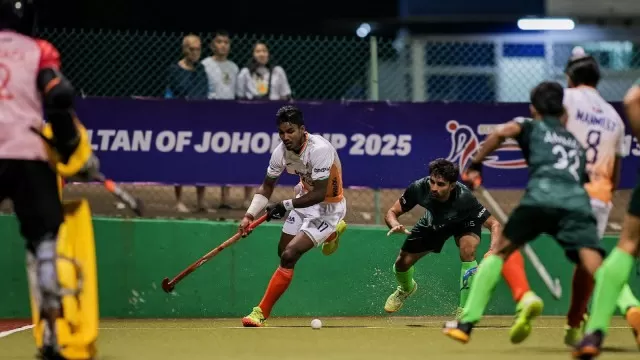

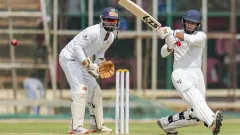




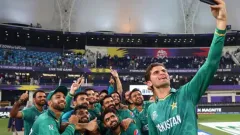







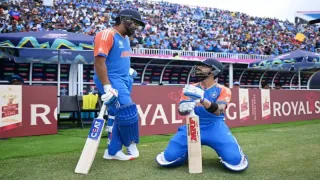




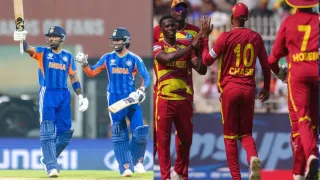
Give Your Feedback